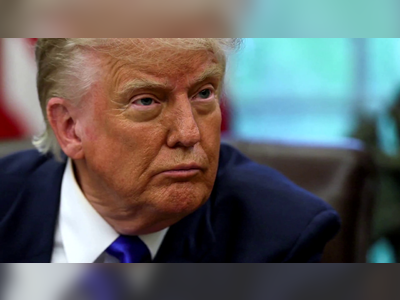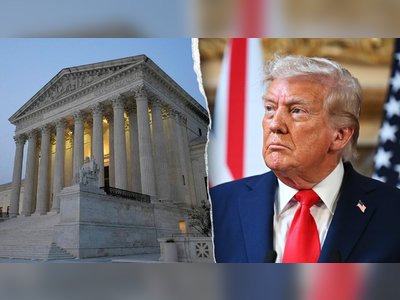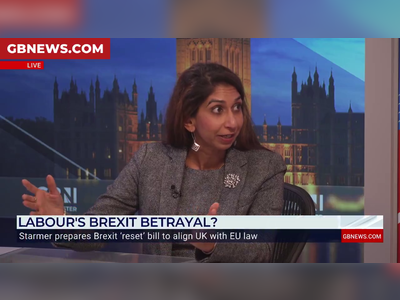Hungarian Government Intervenes in Multibillion Investment
In an upcoming government decree set to be adopted, Hungarian fund managers are expressing cautious acceptance of the compulsory government bond holding requirement, despite it being a sore point.
According to industry opinions, no major shift in asset management is expected; however, the new regulations might not favor domestic stocks.
Fund managers express a preference for maintaining industry self-regulation in the composition of investment funds; nonetheless, they accept the legally binding categorization and asset limits. This consensus among fund managers was reported to Világgazdaság regarding the proposed changes to the national regulations that govern Hungarian investment funds.
At the end of January, the Ministry of National Economy announced its intention to open up societal discussion on amending Government Decree 78/2014 (III. 14.) concerning the investment and borrowing rules of collective investment schemes, aiming to further enhance "conscious financial and investment decisions, transparency, comparability, and financial consumer protection." Világgazdaság inquired with local asset management sector representatives about their views on the proposed amendments.
A Unique Regulation in the Works by the Hungarian Government
Investment experts speaking anonymously to our paper highlighted that it is not common practice in Europe to categorize investment funds by law or to legally sanction the potential overstepping of portfolio limits.
The European Fund and Asset Management Association (EFAMA) and its Hungarian member organization, the Association of Hungarian Investment Fund and Asset Managers (BAMOSZ), both have their categorization systems to facilitate investor decision-making. Though these include asset allocation limits, they are meant as guidelines, which fund managers may deviate from in pursuit of maximizing returns.
Restrictive, Yet Reasonable
Fund managers clearly interpret the proposed amendments to the government decree determining the proportions of various assets that investment funds must hold as a restriction.
Our professional sources indicate that the policymakers have set fundamentally reasonable proportions, with a typical equity fund characteristically holding about 80 percent of its assets in stocks. However, these proportions could change abruptly or significantly during market fluctuations or if a portfolio manager deems there are no suitable investment opportunities available on the stock market. By possibly setting a minimum 80 percent equity requirement, the government decree could restrict the investment professionals' flexibility.
The Pest May Suffer the Consequences
Initial reactions to news of the amendment suggested that the changes could boost demand for domestic stocks through the purchase of funds. However, the new version of the government decree exempts funds that invest chiefly at a minimum threshold of 80 percent in foreign assets.
As a result, portfolio managers might prioritize foreign over domestic stocks, especially in Central European equity funds, to gain greater flexibility.
Ambiguities in the Regulation
According to the new government plans, there will be two categories of mixed funds: apart from the currently present mixed securities funds, a new category named "mixed funds" will be created, which can include up to 40 percent exposure in real estate, potentially resolving the prolonged (180+ days) buyback issue faced by traditional real estate funds. However, fund managers suggest that this new category's naming could be confusing and should instead be clearly labeled as real estate mixed funds to ensure clarity for investors.
Our industry sources also find the draft legislation obscure in some areas. For instance, it is not clear whether the bond funds' required minimum 55 percent security embodying a credit relationship includes the also mandated minimum of 5 percent in government bonds plus an additional 3 percent in short-term government bonds.
Introduction of Mandatory Government Bond Tax?
The aforementioned mandatory 8 percent government bond holding, which applies to all funds, is clearly a painful issue for fund managers, some of whom refer to it as a "government bond purchase tax." The apparent objective may be to ensure continuous demand for Hungarian government bonds from asset managers.
Despite these concerns, the industry does not anticipate a significant shift in the asset composition of Hungarian investment funds following the amendment of the government decree. The market will continue to define these based on investor demand.
Investment funds experienced an exceptionally good year last year, with their asset base expanding by more than one and a half times. The substantial capital inflow, alongside buoyant market yields, contributed to the increase in portfolio values. By the end of 2023, BAMOSZ members managed client assets in excess of 14 trillion Hungarian forints.
Fund managers express a preference for maintaining industry self-regulation in the composition of investment funds; nonetheless, they accept the legally binding categorization and asset limits. This consensus among fund managers was reported to Világgazdaság regarding the proposed changes to the national regulations that govern Hungarian investment funds.
At the end of January, the Ministry of National Economy announced its intention to open up societal discussion on amending Government Decree 78/2014 (III. 14.) concerning the investment and borrowing rules of collective investment schemes, aiming to further enhance "conscious financial and investment decisions, transparency, comparability, and financial consumer protection." Világgazdaság inquired with local asset management sector representatives about their views on the proposed amendments.
A Unique Regulation in the Works by the Hungarian Government
Investment experts speaking anonymously to our paper highlighted that it is not common practice in Europe to categorize investment funds by law or to legally sanction the potential overstepping of portfolio limits.
The European Fund and Asset Management Association (EFAMA) and its Hungarian member organization, the Association of Hungarian Investment Fund and Asset Managers (BAMOSZ), both have their categorization systems to facilitate investor decision-making. Though these include asset allocation limits, they are meant as guidelines, which fund managers may deviate from in pursuit of maximizing returns.
Restrictive, Yet Reasonable
Fund managers clearly interpret the proposed amendments to the government decree determining the proportions of various assets that investment funds must hold as a restriction.
Our professional sources indicate that the policymakers have set fundamentally reasonable proportions, with a typical equity fund characteristically holding about 80 percent of its assets in stocks. However, these proportions could change abruptly or significantly during market fluctuations or if a portfolio manager deems there are no suitable investment opportunities available on the stock market. By possibly setting a minimum 80 percent equity requirement, the government decree could restrict the investment professionals' flexibility.
The Pest May Suffer the Consequences
Initial reactions to news of the amendment suggested that the changes could boost demand for domestic stocks through the purchase of funds. However, the new version of the government decree exempts funds that invest chiefly at a minimum threshold of 80 percent in foreign assets.
As a result, portfolio managers might prioritize foreign over domestic stocks, especially in Central European equity funds, to gain greater flexibility.
Ambiguities in the Regulation
According to the new government plans, there will be two categories of mixed funds: apart from the currently present mixed securities funds, a new category named "mixed funds" will be created, which can include up to 40 percent exposure in real estate, potentially resolving the prolonged (180+ days) buyback issue faced by traditional real estate funds. However, fund managers suggest that this new category's naming could be confusing and should instead be clearly labeled as real estate mixed funds to ensure clarity for investors.
Our industry sources also find the draft legislation obscure in some areas. For instance, it is not clear whether the bond funds' required minimum 55 percent security embodying a credit relationship includes the also mandated minimum of 5 percent in government bonds plus an additional 3 percent in short-term government bonds.
Introduction of Mandatory Government Bond Tax?
The aforementioned mandatory 8 percent government bond holding, which applies to all funds, is clearly a painful issue for fund managers, some of whom refer to it as a "government bond purchase tax." The apparent objective may be to ensure continuous demand for Hungarian government bonds from asset managers.
Despite these concerns, the industry does not anticipate a significant shift in the asset composition of Hungarian investment funds following the amendment of the government decree. The market will continue to define these based on investor demand.
Investment funds experienced an exceptionally good year last year, with their asset base expanding by more than one and a half times. The substantial capital inflow, alongside buoyant market yields, contributed to the increase in portfolio values. By the end of 2023, BAMOSZ members managed client assets in excess of 14 trillion Hungarian forints.
AI Disclaimer: An advanced artificial intelligence (AI) system generated the content of this page on its own. This innovative technology conducts extensive research from a variety of reliable sources, performs rigorous fact-checking and verification, cleans up and balances biased or manipulated content, and presents a minimal factual summary that is just enough yet essential for you to function as an informed and educated citizen. Please keep in mind, however, that this system is an evolving technology, and as a result, the article may contain accidental inaccuracies or errors. We urge you to help us improve our site by reporting any inaccuracies you find using the "Contact Us" link at the bottom of this page. Your helpful feedback helps us improve our system and deliver more precise content. When you find an article of interest here, please look for the full and extensive coverage of this topic in traditional news sources, as they are written by professional journalists that we try to support, not replace. We appreciate your understanding and assistance.

















